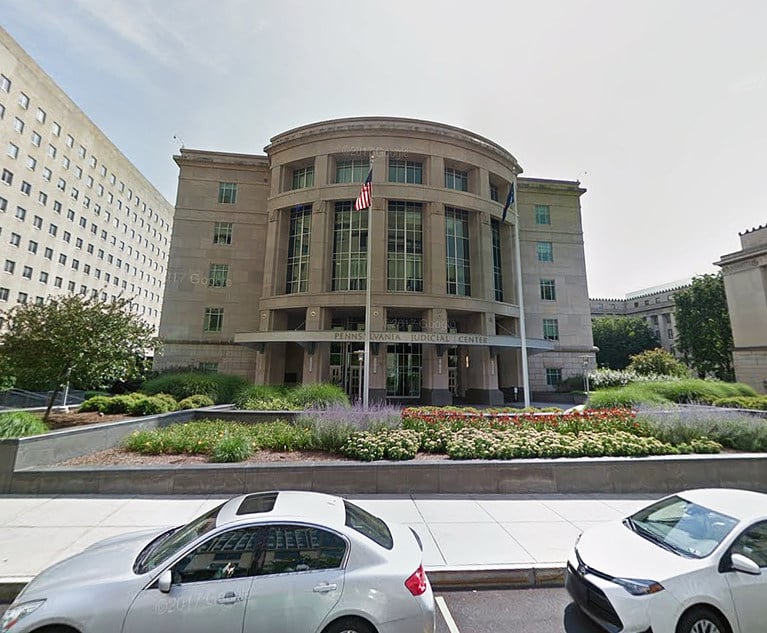The Pennsylvania Superior Court revived a medical negligence suit against Wilkes-Barre General Hospital, concluding issues of material fact existed regarding the hospital’s and health care workers’ alleged gross negligence after a discharged patient committed suicide.
In a 3-0 decision Wednesday, the panel reversed a trial court’s summary judgment order in favor of Wilkes-Barre General Hospital and numerous health care workers. The panel sided with the plaintiff, Laura Azaravich, the administrator of the Estate of Steven Azaravich, who argued that issues of fact existed regarding the defendants’ alleged negligence in treating Steven Azaravich for suicidal thoughts.
Steven Azaravich was taken to Wilkes-Barre General Hospital (WBGH) where he checked himself into the emergency department after calling the police and expressing suicidal thoughts. At the hospital, Dana Simon, a physician’s assistant, documented that Steven Azaravich was experiencing depression and suicidal ideation, and entered an order to detain him. A couple hours later, Steven Azaravich was assessed with a “high risk” of suicide by a registered nurse. Hours later, one of the crisis clinicians, Daniel May, indicated in his notes that Steven Azaravich reported he didn’t have an intent to hang or harm himself, and wanted outpatient treatment.
May consulted with Dr. Jyoti Shah, the on-call psychiatrist who never personally evaluated the patient, but did not inform the doctor of the nurse’s risk of suicide assessment performed, and only reported the symptoms as he had assessed. Based on this assessment, Shah approved releasing Steven Azaravich. Two days later Steven Azaravich hung himself, the opinion said.
On behalf of the estate, Laura Azaravich raised claims for medical negligence, wrongful death, a survival action, and a claim for punitive damages against all the defendants: the hospital, May, Crisis Response and Recovery Center of NEPA, Community Counseling Services, Dr. Noel Estioko, and Simon, as well as corporate negligence against WBGH. Both parties filed cross-motions for summary judgment, and the Luzerne County Civil Division of the Court of Common Pleas granted the defendants’ motion and denied the plaintiff’s.
On appeal, the estate raised two issues, including: whether the trial court committed an error of law or abuse of discretion by granting the defendants’ motion for summary judgment against the plaintiff, the nonmoving party, after concluding Laura Azaravich failed to establish the defendants acted in a grossly negligent manner, despite producing six expert reports detailing the alleged negligence. The plaintiff also claimed the court erred in refusing “to apply the negligence standard as opposed to the gross negligence standard to the non-mental health claims such as the severe deviation of the credentialing, staffing, and others.”
“Based on our review of the record, viewed in the light most favorable to appellant, we conclude that the expert’s conclusions are sufficiently supported by the record and there are genuine issues of material fact concerning whether Appellee Hospital flagrantly or grossly departed from the standard of care regarding its duties to select and retain only competent physicians, oversee all persons who practice medicine within its walls as to patient care, and formulate, adopt and enforce adequate rules and policies to ensure quality care for the patients,” Judge Carolyn H. Nichols said.
“Further, appellant’s experts opined that appellee hospital was aware of these flagrant or gross deviations from the standards of care and these deviations were a substantial factor in causing the harm to decedent,” Nichols continued. ”Therefore, the trial court erred by entering summary judgment in favor of appellee hospital on appellant’s corporate negligence count.”
Regarding the medical negligence claim, Laura Azaravich argued the trial court erred in granting summary judgment as it failed to view the evidence in the light most favorable to it, claiming the court erred in accepting the defendants’ summary of the factual history of the case. Laura Azaravich further argued the court erred in assailing the estate’s experts’ credibility in concluding the experts’ conclusions weren’t support by the record, and that the experts didn’t understand the gross negligence standard.
“Because a dispute over the applicable standard of care goes to the expert’s weight and credibility, it is not a proper consideration at the summary judgment level and must instead by decided by the finder of fact at trial,” Nichols said.
According to Nichols, the lower court’s analysis failed to comply with the Pennsylvania Supreme Court’s holdings in Bourgeois v. Snow Time (2020) and Summers v. Certainteed (2010), and the record supports the estate’s expert reports. In the present case, an expert opined that May’s failure to inform Shah of the decedent’s prior symptoms and suicidal ideation was “‘severely and substantially below’” and a “‘gross deviation’” from the standard of care, the opinion said.
Additionally, experts opined that May’s failure to contact the decedent’s family, treating psychiatrist, or the police officers who transported him to the hospital in order to get additional information, was grossly negligent.
While the trial court did not specifically mention the plaintiff’s corporate negligence claims, it concluded that the experts also failed to establish the hospital had been grossly negligent. The appellate court disagreed, pointing to expert opinions that said the hospital’s failure to provide “‘on-the-job training to Simon is far below the standard of care and industry standard,’” the opinion said.
“In these challenging times, when mental health issues are affecting so many, we are gratified that the Superior Court of Pennsylvania overturned the Court of Common Pleas’ decision to dismiss this case. This case addresses critical issues related to suicide and the health care system’s treatment of individuals who are suicidal,” said Laura Azaravich’s attorney, David S. Senoff of First Law Strategy Group.
“Legally, while the Superior Court’s unanimous, published, precedential opinion reversing the Trial Court’s grant of summary judgment against our client may not have set new legal precedents, it importantly reaffirmed that trial court judges must act as impartial arbiters, focusing solely on whether there is a genuine issue of material fact to be resolved by a jury,” Senoff continued. ”The Superior Court found that our clients’ pretrial expert reports did indeed create such an issue, which means it is not the trial court’s role to assess the credibility or value of these experts’ opinions. Instead, the trial court must determine if the expert reports present a genuine issue of material fact that warrants a jury trial.”
Wilkes-Barre Hospital Co., May, and Crisis Response and Recovery Center of NEPA and Community Counseling Service’s attorney, Stuart T. O’Neal III of White Burns, declined to comment.
Estioko and Simon’s attorney, John J. Hare of Marshall Dennehey, did not immediately respond to a request for comment.
Original article – https://www.law.com/thelegalintelligencer/2024/06/06/superior-court-revives-medical-negligence-suit-against-wilkes-barre-general-hospital-following-discharged-patients-suicide/





